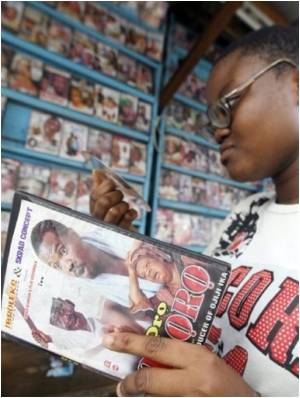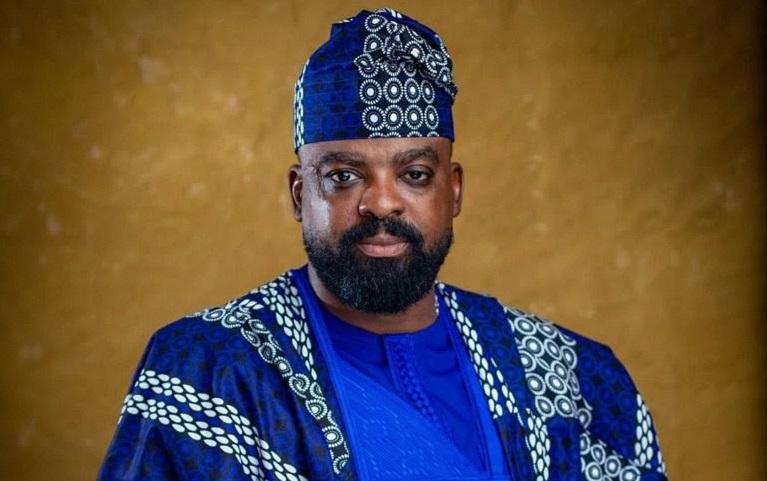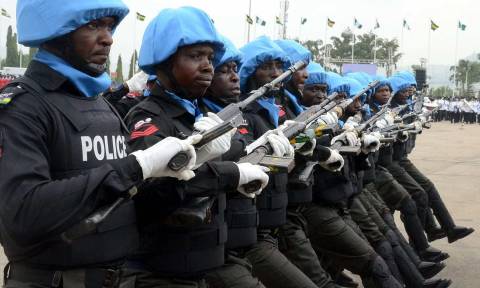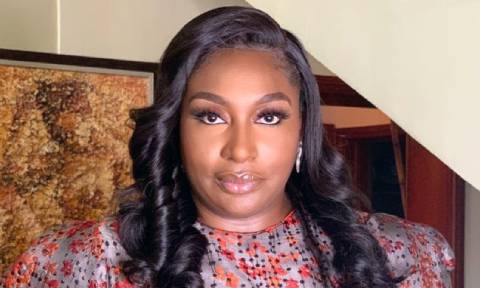
Multiple award – winning playwright, poet, literary activist and scholar, Professor Femi Osofisan, is Africa ’s foremost dramatist. Osofisan, who lectures at the University of Ibadan, has written and directed some 50 full length plays performed in many countries across the globe, apart from numerous skits, making him one of the most prolific and versatile artists to have come from the black world.
Despite his achievements and capability, however, “F.O”, as he is fondly called in the arts circuit, has shunned the lure of the glamourised world of screen drama despite the amplification it gives to creative talents.
Deliberately, he has refused to take part in Nollywood, electing to continue to foster stage theatre, which has always been his forte.
In this interview with the dramatist gives an appraisal of the Nigerian movie industry, the emergence of stand up comedy as a dramatic genre and his current interest in and endeavour at promoting reading among youths, through fictional writings.
Some of your colleagues like Prof Akinwunmi Ishola, the late Dr Larinde Akinleye and others have all embraced Nollywood, why are you not in Nollywood?
(Laughs) I thought I’ve explained this before, you know; the conditions are not there yet. That’s number one. Secondly, I think everybody should just perform according to their own talents. I’ve never seen myself as a film specialist, either in terms of scripting and other things.. Like, there are those who are good at writing film scripts and there are those who are good actors. I believe that we should give them a chance. So, if I have a work, I can give it to somebody who is good at script writing to convert it for film that will be okay. So, that is one aspect.
The other aspect is the aspect of production. As you know right now, Nollywood is sponsored mainly by these spare parts dealers. They are the ones who finance it and they are not interested in the serious stuff for understandable reasons. They are simply business people and they want to make their money back as fast as possible. They are not interested in those higher considerations of culture and anything. So, it’s like selling fast foods, they just want to put the films there and make their money the following day. So, because of that they are not interested in serious stuff and I can’t blame them because it’s the law of business; it’s like the old Onitsha market literature.
You would remember that until the multi-national companies came, – like Heinemann and so on, our literature did not really develop, it was from the Onitsha market that Ekwensi came, you know. Apparently, it is going to be the same thing if we are not careful. It’s when we get foreign capital to invest in this Nollywood thing that we are going to begin to get better quality simply because no other person is going to finance it. If you have a very good film script now and the Idumagbo marketers or so are not interested in that, you go to the bank, the bank will not give you loan, because they are not interested in sponsoring that and there is no national endowment for the arts that you can apply for funding, so what happens? And even some of those who then eventually manage to gather money to make their films, they won’t be able to market the thing because the market has been cornered by these people. So, in that case, what is the point? Unless you can get the means, nothing can be done.
The third problem of course is the issue of piracy. If you eventually manage to do it and try to get it out, what of pirates? We have not solved that problem. Pirates absorbed all your profits. So, these are the problems and until the problems are solved, there is no way I’m going to get involved in it because, I can’t do shoddy work and unless there is somebody, a serious person who can raise the funding and who can really tackle the question of marketing and piracy, there will be no point doing it.
How will you appraise the film industry in Nigeria in terms of social engagement, acting talent and directorial skills?
Well, as far as acting talents are concerned, you know we have no problem with that. We have excellent actors both male and female; people who are fantastic, so there is no problem with that. The other aspect of social engagement, we have a very few films which are ready to engage social problems from serious perspective but for the most part, it is still this ritual thing- rituals, violence, sex, you know, these are the things that are selling at the moment and most of the films are like that.
But, we do have a few films that are now beginning to take more rational perspective to things and I hope we do have more than that. In fact, this is the real criticism of Nollywood, that they have refused to engage social problems from rational perspective. It’s all about cultism, about mystery, miracle and so on. That’s all and that’s a pity.
How desirable is this for a country that is still grappling with development problems and leadership question?
Well, in fact this is the time when such films thrive most. It’s when there are social problems, poverty as we have now, unemployment, desperation, industries and medical services have broken down, people are not sure which hospital to go to, if they go there whether they are going to pay, so, they resort to miracles, healings and things like that. So, it’s at times of great social-economic problems that this cynicism flower most. That’s what we are having now. Because the government has been incapable of solving the problems that confront people daily, governments at various levels are unconcerned about the plight of the people and so people have to seek extra ordinary means and solutions. This is where cultism and other things come in. That’s why charlatans are profiting.
So, everybody sets up a church now or becomes a “Babalawo” or an Imam or something, prophesying to people and prescribing all kinds of miracles and all that because people are desperate. They don’t have an empirical means of solving their problems. Now, serious artists would confront that. That is what they would now try to address to show people that these are false means and these are the concrete solutions that you need to pursue. These are the kind of bad leadership that you should fight, you know. So, serious artists would grapple with that, but unfortunately that is not what we are having. Not only that, we are creating a certain negative image of the country to outsiders. And, I’ve seen this in a very real situation and I keep referring to it that at a film festival in Cotonou there, we were showing films from different countries and when it came to Nigerian film, almost like a stampede in the room, everybody running here and there picking their children.
I was astonished; I didn’t know what was happening. And then I heard comments from people saying we don’t want our children to watch this, they are scared of this, it will be juju and things like that. That’s one. The second instance was in Accra, you know, when I was there, there was a case of ritual murders because we were finding dead bodies in various parts of the city, dismembered you know, and people were insinuating that maybe they were used for rituals.
You won’t believe that suspicions just went straight to Nigerians. I mean it was becoming dangerous to say you are Nigerian because they started focusing on Nigerians in there midst. They said it is this Nigerians who have come here to look for wealth who are doing these things and they were almost organizing an attack on Nigerians. But fortunately, just in time, the culprit was discovered and he was a Ghanaian. Otherwise, angst was already building up against Nigerians on account of these films. And so, there is an image of the country that is concerned. Now of course, what can the government do about this, these are private initiatives, people making their films and making money and in any case, with the amount of piracy that goes on, some people will just come down to Nigeria , buy these films and just go and reproduce them without referring to anybody.
But, I thought about this while I was at the ministry of culture and we tried to look for solutions to this thing. The solution is obviously to provide alternatives those of you who are saying you ban this, okay, I am currently in Accra, I’m directing a play there and the other night, I heard that Ghana is considering banning Nigerian films in Accra. Of course, there is lot of interactions now with their Ghanaian actors and so on, which is kind of mediating on the issue. I heard that talk that they want to ban Nigerian films. Of course, that is a negative way of doing it.
That suggestion was also made here too while I was at the ministry, some suggested that what to do was to ban these films, if you ban them what will happen? You drive them underground, they become even more prolific and in any case where do we have such censorship of that nature on earth, I will never agree to that. But, the solution obviously is to provide alternatives. If there are alternative films, people won’t watch the negative ones.
You mentioned Akinwunmi Ishola and others the other time, that is exactly what it is. Akinwunmi Ishola and Tunde Kilani have provided the model. They have proved that serious films can sell. In fact, even sell more than these Nollywood films, films that are not devoted to cultism and things like that, but which deal with social issues in a very serious manner and in positive way, but the thing is, who are the people to finance it, Who will finance the films, this is the problem. We have few of them who are ready to do these kinds of films, but who will finance them and it has been like that. If that is the problem, how can we solve the problem and this is why I thought, at least with government initiatives, we could start with that you know. I thought if the government started by giving initial capital to support film making, it would spur on private ones. And what I meant by government support is that we can do it in a number of ways. One, to create a bank to support a burgeoning industry as we have for agric banks, we have agriculture banks and so on, so that you can go and take a loan at a reasonable interest that will not kill you. If you want to take a loan at the rate they are going now in the banks, you can never make it, but if there are special banks, special funds created to support that industry, to grow that industry, government can do that, you know or put money on national endowment funds for arts which has been passed into law for how many years now?
And not a kobo has been given it. So, you have national endowment for the arts which we worked for when we were at the ministry, we did a lot of work on that. You know, if we have that, then a film maker can write proposal to that bank and get funding for his film, this is not a new thing, it’s not as if we are inventing it, it is done in other countries to support acting, I’m now saying if we start with that, people who are willing to make films can now have access to fund, then we will have enough to counter the Nollywood market, just as the Heinemann series became dominant and drove out Onitsha market, the (civil) war was really responsible for the death of Onitsha market, but at least people who really want to read Heinemann will not be buying Onitsha market series.
If we have a body of films of that high quality, there wouldn’t be need for any legislation, they will naturally drive these things out and we will then present the positive image of the country. If we are really worried about the image of our country, our major project should be production of films which will counter the Nollywood image, we can even go further than that, we can call the government to put N50m to N500m in a bank for us to be seeing it as a film development bank or to fund the endowment fund so that artists can draw from that too, there wouldn’t be only film makers. We can encourage this thing; we at the ministry can invite numbers of writers, like 10.
We have a lot of good story tellers because we don’t want propaganda. We can just say we want to change the image of this country not by lying but to tell a story that will create positive values, through that, they can give us up to 10 stories because they have the ability, then we invite good script writers by the time you develop the 10 and put them in the market, you will see how private sector will be patronizing it, then the banks will be ready to partner with you and that will start the whole new generation of films that will give us good image across the country.
Live theatre seems to be on decline. What can we ascribe to this?
The problems are quite simple, one is the economy and the other is security. Talking about security, how many people will want to go out in the night to see theatre? People thought it was Nollywood that killed the theatre; Nollywood came in at the right time when the theatre was dying. People cannot go out due to the issue of robbery and the earliest time film can start is 6:00 in the evening and you can watch a play till 8:00, in so many areas, that is already too dangerous, not only armed robbers but we have some police who are trigger happy, so the streets are not safe, that’s one.
So, it affects the audience, of course, we have the issue of traffic, in Lagos for instance, if you get home from work, can you now say you want to go out to watch theatre? It’s just not possible. How much do you earn for you to get a ticket? And not just one, you will want to buy for your wife and children. For those producing the work, the cost has to go up. You will have to paint the set and you know the cost of paint, costume, electricity, you will pay artistes, by the time you put those costs together, you will know how much you’re left with. How many people are ready to pay exorbitant fees you will charge?



















